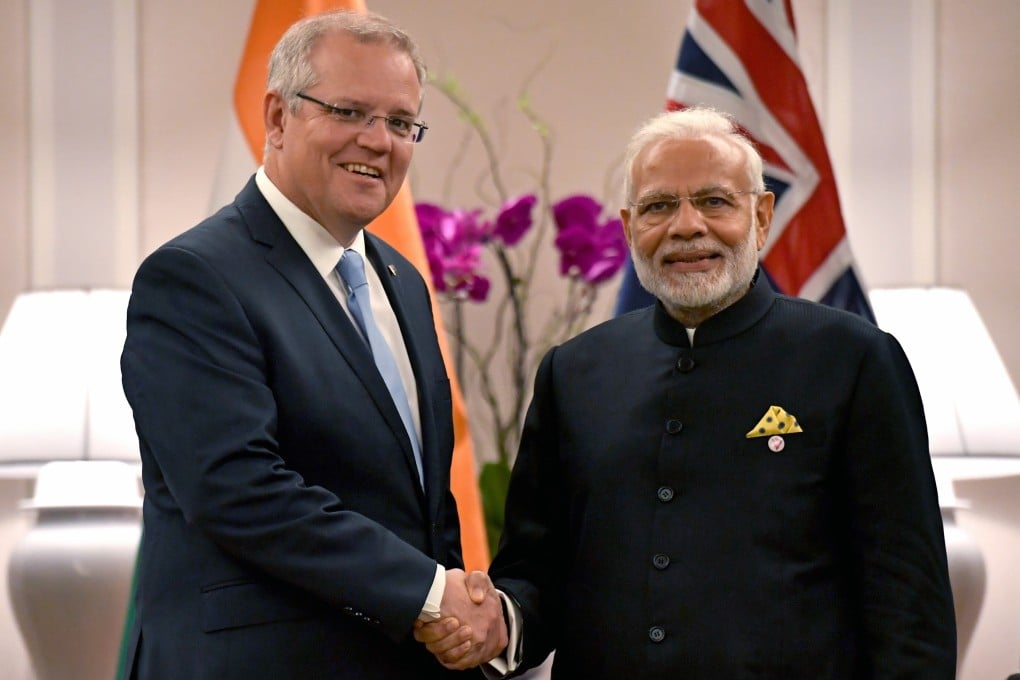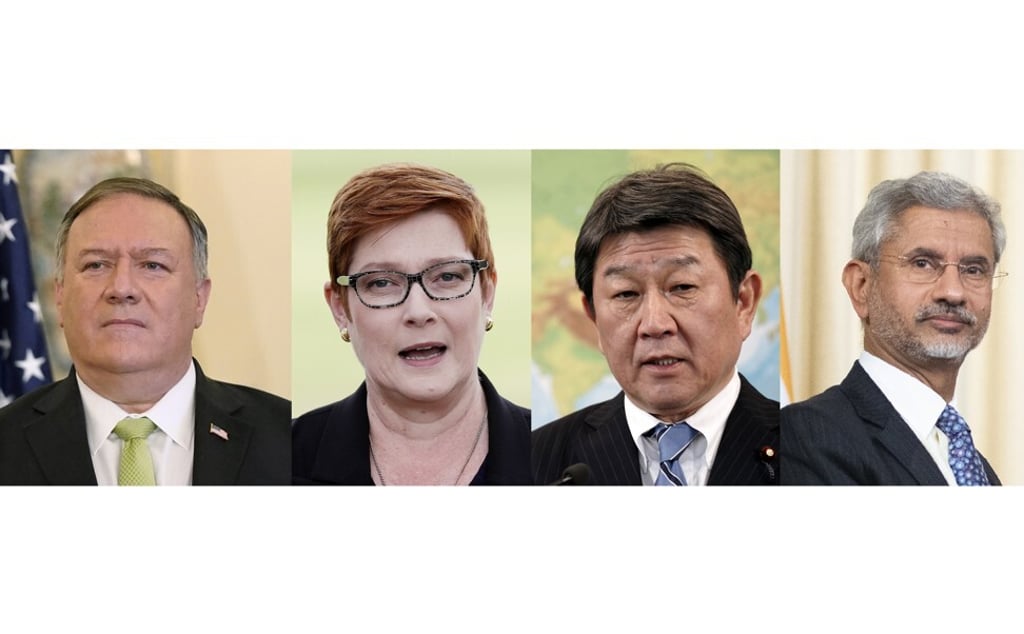Advertisement
Analysis | Will closer India-Australia ties boost Indo-Pacific ‘Quad’ group that has China in its sights?
- US Secretary of State Mike Pompeo will meet foreign ministers of India, Japan and Australia in Tokyo for Quad talks amid questions of whether they will hold a quadrilateral military exercise
- Analysts say warmer ties between New Delhi and Canberra could make India invite Australia to the annual Malabar exercise it has with the US and Japan
Reading Time:5 minutes
Why you can trust SCMP
0

US Secretary of State Mike Pompeo’s decision to press on with a meeting of foreign ministers from Japan, India and Australia in Tokyo – despite President Donald Trump’s Covid-19 diagnosis – is aimed at assuring Washington’s allies in Asia of its commitment to the region.
The Quadrilateral Security Dialogue (Quad) meeting is after all one of the highest-profile diplomatic gatherings for the Trump administration before next month’s US presidential election, where Washington’s worsening ties with Beijing have featured strongly in the campaign.
It is also meant to send a message that the four countries are committed to an “Indo-Pacific strategy”, conceived to elevate India as a potential regional counterweight to China, an initiative that Beijing has opposed.
Last Tuesday, Chinese foreign ministry spokesperson Wang Wenbin reiterated China’s opposition to a formation of an “exclusive clique” that is detrimental to the interests of third parties, adding that “multilateral cooperation should be open, inclusive and transparent”.
The Quad meeting on Tuesday will cover a host of issues, including the inclusion of Australia in the Malabar Exercise – trilateral naval exercises between India, the US and Japan – cooperation in defence and at multilateral forums, the India-China border stand-off, the coronavirus pandemic, space and technology and economic-related matters.
The top American diplomat for East Asia, David Stilwell, said in a briefing to reporters last week that while there were a lot of areas for discussion, there could be “free form as well”. The meeting was unlikely to produce a joint statement, he added.
Advertisement
